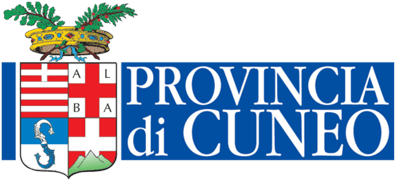For the fourth interview of our column “Dialogues with Pavese”, we asked professor Rossella Riccobono to introduce Pavese as a poet and a modernist.

You focused on the study of some aspects of Pavese as a poet. From what did this interest spring? What paths did it follow during your career?
I have always read Cesare Pavese, since I was a teenager. I read him mostly in the summer and once I had read La casa in collina (which had been assigned to us as summer reading by one of our high school teachers) I basically moved on to devour all his other works. Firstly, I read only the novels, but it was only later – after the end of my PhD – that I took an active interest also in his poetry. Specifically, what made me continue my research on Pavese during my career is the way he treats Turin and the countryside as reincarnations of the ancient Greek myth of Eros and Thanatos, with a brutal view of violence as the universal ticking mechanism, at a time when Italy was going through the Fascist dictatorship. But his work is not only metaphorically referring to the political ambience within which he was writing it (and some shadows have been indeed cast over his political creed), but is conceived at a time when the landscapes of the city and the countryside change drastically during modernity, as the effect of the neonate Neoliberalism and early industrialisation in 1920s-30s Italy. This changed the geographical and cultural landscapes and mental life and health. My vision of his writing is that it forms a one and only book spanning different genres, written from different viewpoints (both male and female) across different social classes. The overall picture that emerges is that modernity is only a delusional label hiding the same forces – violence and brutality – that we experience in reading Dialogues with Leucò. Pavese’s vision of the world is, for me, a reincarnation of Leopardi’s universal pessimism filtered through Giambattista Vico’s The New Science. A lot of this influence emerges through Pavese’s testament, Il mestiere di vivere.
Why did you choose to focus on the poetic production – especially expressed in Lavorare stanca – of Pavese, which is less relevant if compared to his production as a novelist?
When I started to work on Pavese’s poetry, very few had written on Lavorare stanca and fewer even on La terra e la morte and Verrà la morte e avrà i tuoi occhi. My stance was that by approaching the novelty of his writing from his poetry, which in my view remains underrated and not fully comprehended, I would read his work in a different way. As Pavese was fluent in English and had written his degree thesis on Walt Whitman, it is easy to see why his dissonant verse has its origins from a more European and international tradition rather than from the lesson of the Italian endecasillabo and the classical “verso cantato e piano”. I am convinced that Pavese’s poetry represents an Italian phenomenon of the Poème en prose proposed by Rimbaud in France and by Whitman in the U.S.. The form Pavese uses is indeed a hybrid which very well reflects modern life and society as they develop during the 1920s and ‘30s in Italy, and especially in Piedmont where the trappings of the modern life in the capital, Turin, are portrayed as clashing with the slower and primitive life of the Langhe. Creating his own free verse in Lavorare stanca invokes poetry as an art form but also as an instrument of research into a new hybrid cultural reality. Using a hybrid verse, maybe even ugly if you want, is a way to represent the crisis of a society and is similar, although very different, to the choice of hermetic poets who used a perfect yet obscure verse. Both are strategies of dissent.
Focusing on Lavorare stanca, Pavese chose for the promotional band this definition: «One of the most isolated voices of contemporary poetry». Was this a negative definition or, on the contrary, did Pavese want to underline the self-awareness of his positive difference?
I do believe that Pavese felt that he had something new and different to say, especially if we connect the ideation of his work and verse to a more international literary tradition which was contemporary to him and which he studied and practised with curiosity and passion.
Among your research interests, there is the study of narrative and poetry of the 20th century and the title of one of your articles is Cesare Pavese e la crisi del narratore moderno. According to you, can we define Pavese – as a poet and as a novelist – as a Modernist?
In the recent studies on Italian Modernism, still ongoing and where the label Modernism has not yet been fully defined or clarified (I am referring to the work of Romano Luperini, Massimiliano Tortora, Raffaele Donnarumma, and Riccardo Castellana, to mention but a few), Pavese is not studied or mentioned as a one of the Italian modernists. I am trying to make the case that Pavese was indeed a modernist, but the way to fully demonstrate this may be long. Others, Alberto Comparini and Bart Van den Bossche, have studied Pavese as a Modernist in connection with his use of the Myth and their studies are strong and well calibrated. In my article Cesare Pavese e la crisi del narratore moderno (2018), I argue the case that the narrators within Pavese’s work reincarnate the figure of the ancient storyteller (Homer) that, according to Walter Benjamin, had been silenced from our society after the horrors of the First World War. I am trying to make the case that some central texts in Pavese’s poetry or novels (I mari del sud, Paesi tuoi, Tra donne sole, and La luna e i falò, just to mention some) are activated by storytellers who propose the myth of Piedmont, the Langhe or Turin as a theatre stage where the characters re-enact the tragedy of life which we find in old mythology: Eros, Thanatos, and the land are still the forces that move the threads of the human act. This means that Pavese’s vision and use of mythology is also one of my criteria to include Pavese within Italian Modernism. But I have more in mind for my next essay.
You worked at the University of St. Andrews, in Scotland. What is your perception of the relationship between Pavese and the Anglo-Saxon critique and literature?
I am now retired and no longer work at the University of St Andrews. However, over the years, as I researched Cesare Pavese and wrote on both his poetry and prose, my reference points remained Doug Thompson among scholars in the United Kingdom: I believe that no one else have grasped Pavese’s work in the same exciting or satisfactory way. I also highly value the work by Bart Van den Bossche in Belgium and Alberto Comparini now at the University of Trento. There are other strong poles of research on Pavese in the U.S. (e.g. Mark Pietralunga), without forgetting the research at the University of Venice, the University of Milan and the University of Turin where, under the leadership of Mariarosa Masoero, we have the very important and now partly-digitalised Centro Studi Gozzano-Pavese.
What future directions can studies and researches on Pavese possibly take to be in dialogue with the contemporary world? I am thinking, for instance, of your study Poetry in Palliative Care, which focuses on poetry as an aid for patients in hospices?
The project Poetry and Palliative Care, for which I created the medical tool PaUSE (Poetry as Unifying Shared Experience), came to an end in early September 2019, when we presented the results of our research at a couple of conferences in England. Since I am a retired scholar and no longer work at the University of St Andrews, I will now use a different form of a poetry medical tool – which I ideated – for a new project which will start in early 2021. I plan to start collaborating with a hospice in Scotland and one in Italy to work on poetry as alleviation of pain for sick people and support for volunteers involved in their care. This new project is very innovative, but I am not sure that I will use Pavese’s poetry in it as it is not suitable. I’ll try to answer your question, though, in a different way. One of the strongest issues that we are facing nowadays is the Climate Change and I wonder whether Pavese’s poetry and prose, which in my view are intimately connected, could still be relevant to discuss the change of landscape in the countryside and the city, and now also globally. We might think how the progressive destruction of the rainforest is feeding the economic gain of a few corporations and annihilating our sense of values and cultural communities by affecting our mental life and health. As the resilient community of the Langhe in the 1930s was invaded and corrupted by the city values, Pavese’s characters and literary personae experienced those effects on the integrity of their mental health: we only need to think of La bella estate’s main character Ginia and her progressive corruption and transformation into the nihilist Clelia of Tra donne sole; or Gella’s mental life and first signs of stress in Gente che non capisce. I believe that Lavorare stanca offers us a valid and still relevant tool of discussion to critique our current climate issues and the effects they can have on our lives and on our global landscape.
70 years after his suicide, we still need Pavese (Un Pavese ci vuole is the name of a series of interviews on YouTube that I realized on Decamerette channel): do you think that this is true? And, either you agree or not, why?
First of all, my congratulations for the series Un Pavese ci vuole, of which I have followed three episodes where you interviewed Pierluigi Vaccaneo: it is an exciting initiative, that gives Cesare Pavese and his work a well-deserved space. To answer your question, I think that we definitely still need to read Pavese’s work – starting from his first collection Lavorare stanca followed by all of his later artistic works – without forgetting his masterpiece, which I believe is Il mestiere di vivere. I believe that, within the context of current academic work and projects – which from my viewpoint are becoming overly based on political correctness, theories, area studies, cultural studies and other fashionable studies, often to the detriment of a good text analysis – Cesare Pavese still remains one of the writers who worked and wrote with a sense of loyalty and ethics to deeply change our culture. He produced culture through his editorial work at Einaudi when Einaudi was leading cultural shifts in Italy in the 1940s and 1950s, particularly through the trio Pavese-Vittorini-Calvino. Not only his work impacted Italian culture in a truthful and authentic manner, but he introduced areas of cultural studies (see his Collana viola in collaboration with Ernesto De Martino) opening our confines to other realities across the borders and knowledge paradigms at a time when this was difficult and also, for a period, politically dangerous. He crossed not only geographical borders, but he dug further and deeper into our cultural past and roots through his love and translation of the classics. Pavese’s work remains courageous, ethical and truly essential. If during his lifetime he was able to travel back into our past and origins, I cannot see why we can’t consider his work as able to reach our present and future. Indeed, his research, work, and writing remain centred around the most difficult job that we as humans have: il mestiere di vivere.
An interview by Iuri Moscardi



